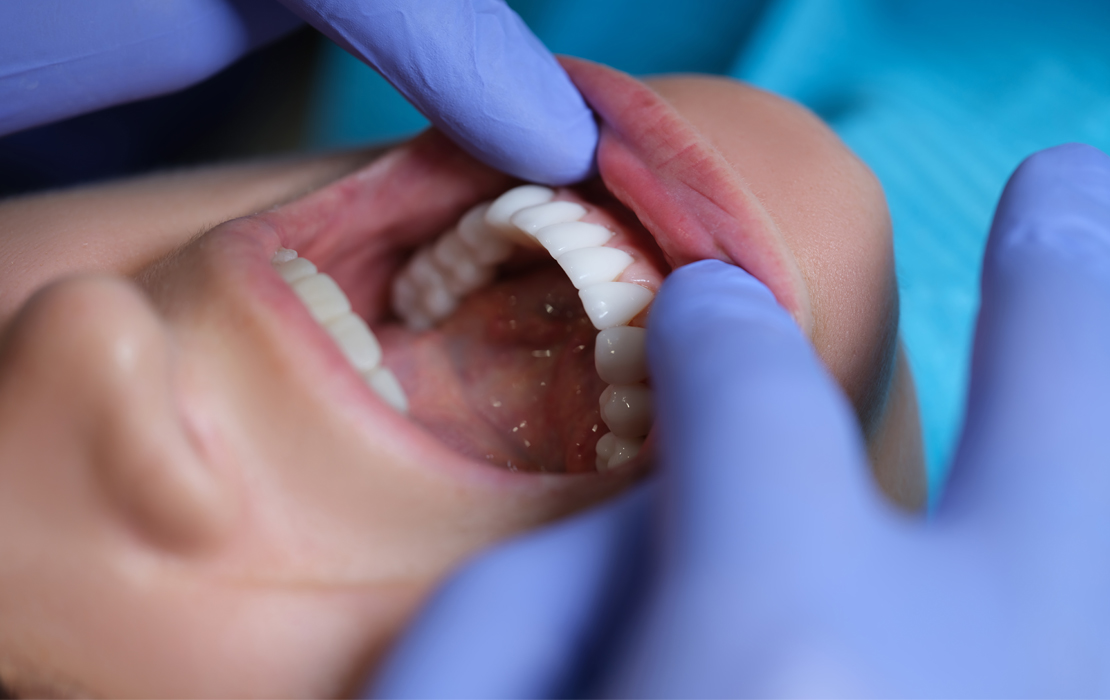April marks Oral Cancer Awareness Month, with HPV-related oropharyngeal cancer on the increase
Observance emphasizes importance of making oral cancer screening part of dental exam routine

April is Oral Cancer Awareness Month, an annual observation that underscores the fact that early detection of oral cancer can decrease morbidity and increase long-term survival.
The observance also emphasizes the importance of making oral cancer screenings part of the dental exam routine.
This is especially true given that due to human papillomavirus infection, head and neck cancers are occurring in those in whom the typical risk factors of cigarette smoking and alcohol consumption may not be present.
HPV-related oropharyngeal cancer has risen over the past two decades, while oral cancer linked to tobacco and alcohol use has declined over the same time period, said James Mancini, D.M.D., ADA Council on Advocacy for Access and Prevention chair.
“The administration of the HPV vaccine is a safe and effective way to reduce the risk of HPV-related cancers, including certain head and neck cancers,” Dr. Mancini said. “Recent evidence shows that giving a strong recommendation for HPV vaccination at age 9 will increase vaccine completion success, increase on-time vaccination coverage and may help prevent more cancers.”
Over the past half-dozen years, the ADA has engaged in ever-increasing research and advocacy to protect the public’s health by its efforts supporting HPV vaccination and head and neck cancer screening.
In 2017, a panel of experts convened by the ADA Council on Scientific Affairs presented a clinical practice guideline , published in The Journal of the American Dental Association, to inform clinicians about the evaluation of lesions, including potentially malignant disorders, in the oral cavity.
In 2018, the ADA House of Delegates adopted the position that HPV vaccination, as recommended by the CDC Advisory Committee on Immunization Practices , is a safe and effective intervention to decrease the burden of oral and oropharyngeal HPV infection, and resolved that the ADA urge dentists, as well as local and state dental societies, to support the use and administration of the HPV vaccine.
Resolution 65H-2019, passed by the ADA House of Delegates in 2019, amended the ADA policy on early detection and prevention of oral cancer to include oropharyngeal cancer and cover all patients, not just those previously thought to be at an increased risk.
In 2020, an umbrella review was published in JADA and co-authored by the ADA’s Marcelo Araujo, D.D.S., Ph.D., chief science officer and chief executive officer of the ADA Science & Research Institute; Cameron Estrich, Ph.D.; and Ruth Lipman, Ph.D. The authors concludedthat systematic reviews demonstrate that the available HPV vaccines are safe, effective, and efficacious against vaccine-type HPV infection and HPV-associated cellular changes, including precancerous and benign lesions.
The National Institute for Dental and Craniofacial Research provides a protocol for dental practitioners for an oral cancer examination based onthe standardized oral examination method recommended by the World Health Organization. The NIDCR also provides the examination protocol in poster form and has a pamphlet on oral cancer for patients as well as a patient education resource for oral cancer and the oral cancer exam. These items are not copyrighted and can be reproduced freely.
The ADA is presenting an April 27 webinar that stresses the importance of increasing awareness of human papillomavirus and educating the public on the need for HPV immunization to help prevent oral cancer. Promoting HPV Vaccination: On Time & At Age 9 live streams from noon-1 p.m. Central time and is worth one hour of continuing education credit.
The ADA has additional free on-demand resources recorded last year related to oral cancer and HPV at ADA CE Online:
- Preventing HPV Cancers in Action Part 1: The Critical Role of the Dentist.
- Preventing HPV Cancers in Action Part 2: Dentists As Vaccinators.
- Preventing HPV Cancers in Action Part 3: 'Building Blocs' — Medical-Dental Collaboration Models and More.
For more information on oral cancer and ADA guidelines, visit ADA.org/resources/research/science-and-research-institute/evidence-based-dental-research/oral-cancer-guideline .



